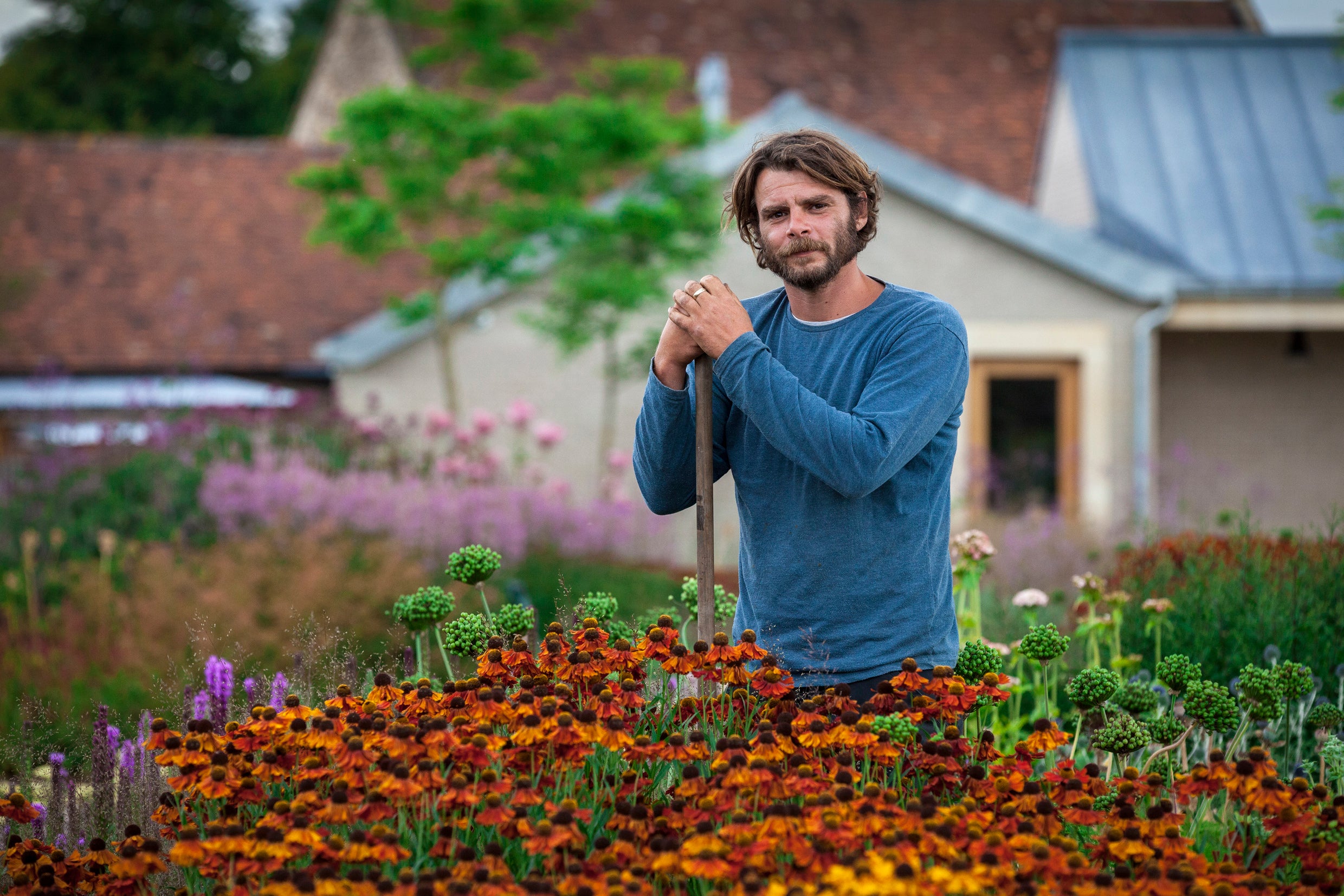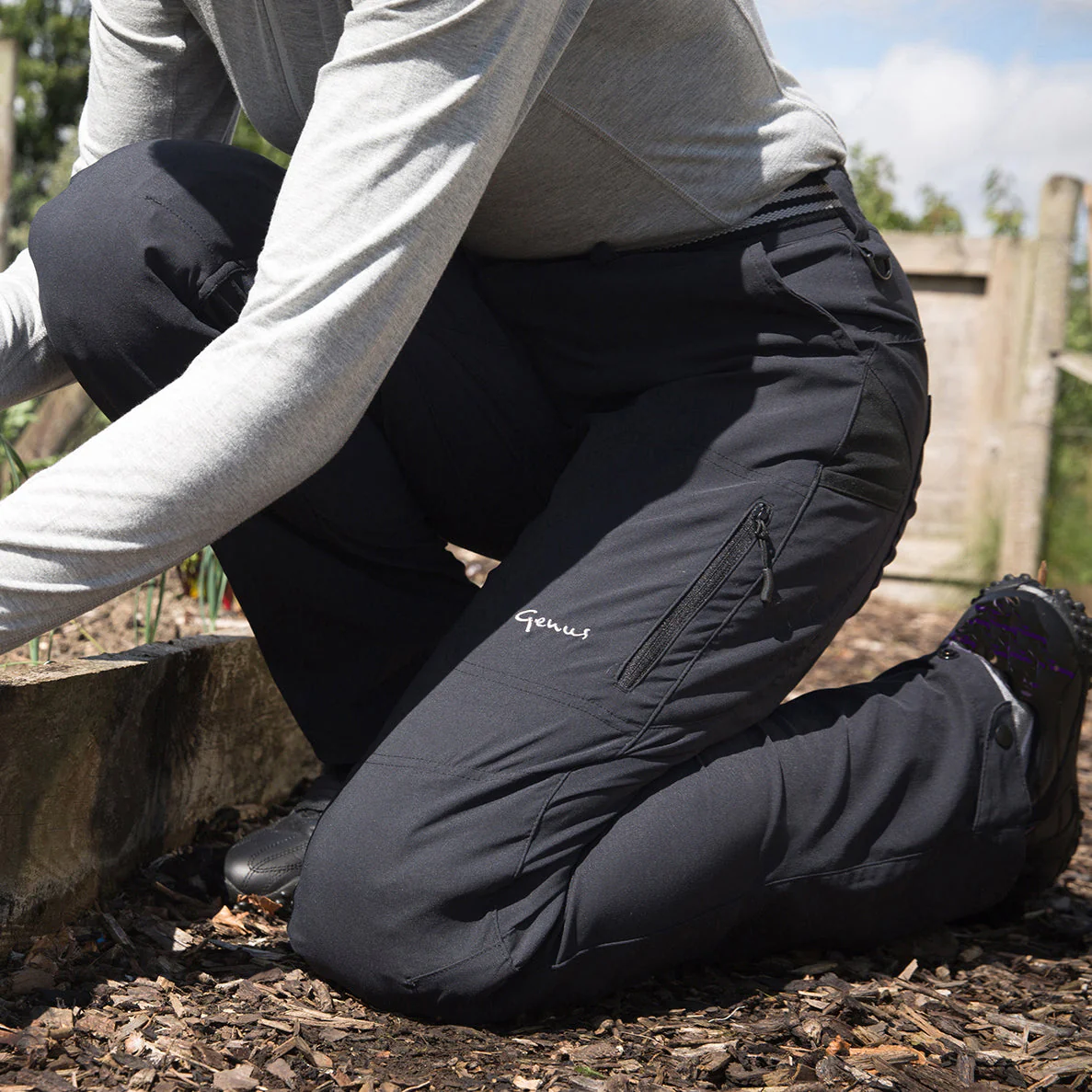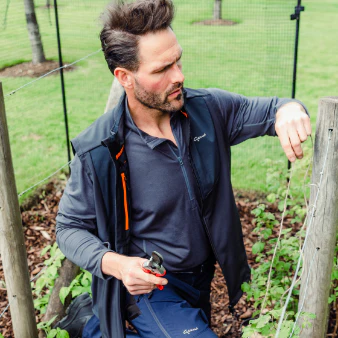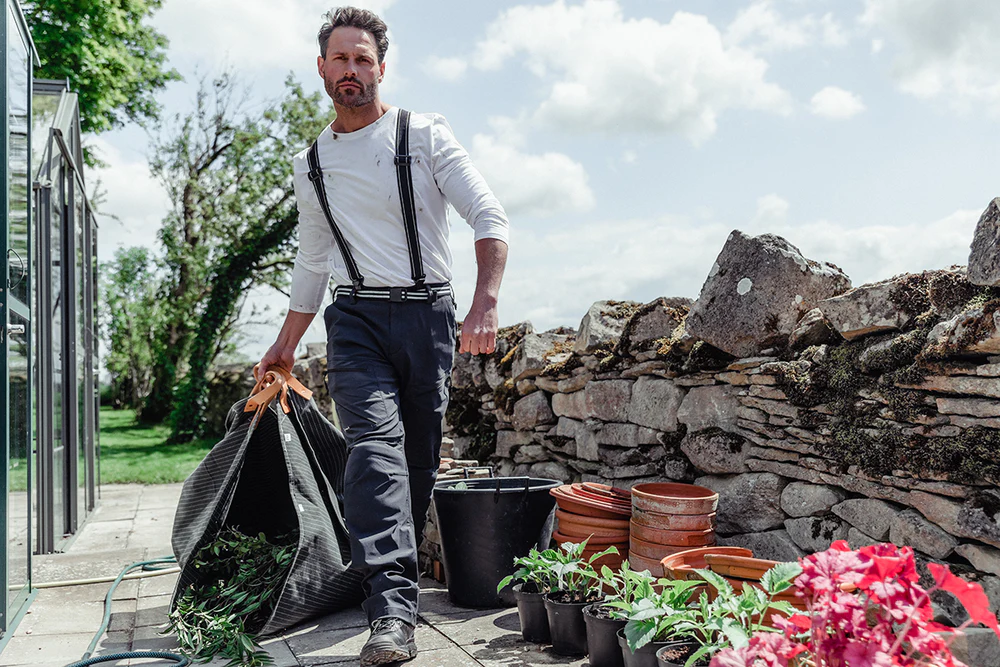Q&A with Mark Dumbleton - Oudolf Field, Hauser & Wirth

Tell us about how you came to gardening as a career?
My grandad was an apprentice at Kew and owned his own orchid nursery. My dad was a gardener and I used to help him in the holidays. You learn so much that way without even realising it. I’d wanted to take over my dad’s business but he died before I left school and he’d always told me to get a proper job. So, I studied engineering and enjoyed the attention to detail, but my need to work outside drew me back to gardening. I worked in nurseries - the best way to learn about horticulture - amongst other gardening roles, before getting my current position.
Tell us what you enjoy about the role and gardens
I take pleasure and pride in making what Piet has designed get better and better. I’m a custodian of his design in a way. Obviously, I can’t get into Piet’s head, but when he’s here, I observe what he’s taking photos of, such as helenium seedheads, which helps me understand what he appreciates. The highlight was walking round the garden with Piet and Anja a few years after I’d been looking after it. I could see Anja nodding and then Piet turned round and gave me a massive hug!
What is works well in the garden in winter?
Echinacea pallida seedheads have a beautiful winter silhouette, the Dianthus carthusianorum works well at this time of year and some of the grasses such as Panicum stand up well throughout winter. I cut down a few things like the geraniums; some plants such as the Molinia ‘Transparent’ grass and Selinum wallichianum collapse, but generally we leave everything as a whole and start cutting down in mid January. With the crisp winter light, almost everything looks beautiful. Even Lythrum, though just bare sticks, provides a contrast to the surrounding lighter-coloured Sporobolus grass and when covered in frost is stunning. You just have to look more closely for the subtle beauty in decay.
Do you have any other plant recommendations or suggestions?
It’s the combination of plants that works. They all have different functions. Calamintha nepeta is amazing for pollinators. We use Geranium ‘Rozanne’ and G. ‘Patricia’ at the points like big cushions. The Asters A.amellus ’Sonora’ and A. ‘Violetta’ are stunning and they stay upright. Succisa pratensis is a good filler between blocks of perennials and Gillenia trifoliata does a similar job.
Do you have a favourite time of year in the garden?
I love the very end of September/early October when there are Echinacea seedheads as well as pops of colour from asters and a few of the Helenium, while the Scabious and Knautia might be having a second flush. The eryngiums are silvering and the panicums are turning a warm reddish colour. Early morning and the late evening when the light’s low, sliding through the planting is the most magical.











